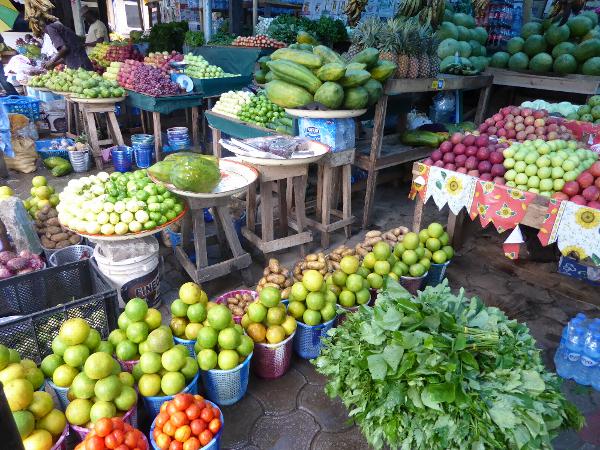CBN Reacts To Criticisms Of Forex Policy On Milk
Central Bank of Nigeria Friday said its proposed foreign exchange policy on milk is aimed at boosting local milk production and job creation.
“Our focus remains forex savings, job creation and investments in milk local production. ”
One of the critics of the new policy is Nigeria’s former education minister Obiageli Ezekwesili who on Friday said the CBN’s foreign exchange policy on milk importation is dangerous to the poor.
“The @cenbank #MilkBanPolicy is DANGEROUS. Dangerous for the Poor,” she added.
CBN might have added milk and other dairy products to items on the foreign exchange restriction list with a view to boosting local production, and investment in ranches.
Sources said that CBN Governor Godwin Emefiele expressly told operators that milk and other dairy products would be restricted from access to foreign exchange both at the official and parallel markets if they refuse to invest in ranches, a move he said would quell the ongoing farmers-herders crisis.
Emefiele noted that the money Nigerian spends importing on milk is too high and needs to be reduced. He also said the policy would help reduce herders-farmers clashes in the country.
“By doing backward integration, it helps to limit or reduce the rate of herders and farmers conclicts in Nigeria,” Emefiele said.
Ezekwesili, however, said the policy might be borne out of the vindictiveness over the rejection of Ruga settlement by Nigerians.
“Nothing more perverse of Political Leaders and Policy Makers as Policies was borne out of Vindictiveness,” Ezekwesili said.
“It appears from what the @cenbank said on the #MilkBanPolicy that it is a case of: “You folks rejected RUGA, here is your punishment, What a BIG SHAME that would be,” Ezekwesili added.
She said if the Nigerian government persist and move ahead with the policy it will only drop more millions of Nigerians into Poverty.
Ezekwesili maintained that the people who are vulnerable to the effects of this policy are the lower class because the ban will lead to scarcity of milk products which will be out of reach of the poor
“Do you think any middle to upper-income Nigerian will be personally worried about #MilkBanPolicy? Not one bit.”
“When the milk ban policy happens, to avoid Scarcity which Prices Milk up and out of the reach of the Poor, Nigeria needs to immediately TRIPLE current Production of Milk,” she added.
But the apex bank has asked critics of it policy not to politicise it but instead see it as a measure to encourage and grow local production of milk in the country.
“For over 60 years Nigerian children and indeed adults have been made dependent on milk imports. The national food security implications of this can easily be imagined,” CBN said.
“And We know that it is technically and commercially possible to breed the cows that produce milk in Nigeria.”
The former Minister of Agriculture and Rural Development, Audu Ogbeh, said that milk worth $1.2 billion was being imported into the country yearly and that the yearly national dairy output and demand were estimated at 700,000 metric tonnes and 1,300 metric tonnes, leaving a supply gap of about 600,000 metric tonnes.
He explained that an average cow in the country produces less that one litre of milk per day, compared to other climes where a cow could produce 100 litres per day and that moving cows from place to place is a major problem affecting the animals and milk production in Nigeria.




